Can Theater Survive the Revolution?
An honest question for the floundering Oregon Shakespeare Festival
Not gonna lie.
Writing this intro and posting my article that ran in The Federalist stings something awful. Sharing regional theater’s fast, almost cartoonish decline brings me to politics (as you probably guessed), something I tried to keep at arm’s length from my theater friends, students, and creative work for a long time.
Not perfectly, I might add.
What I’m saying is that with my theater background, and considering that participating in live theater (acting, helping on crew, watching the pros, writing and staging plays, teaching kids’ drama classes, taking high schoolers Shakespeare outings) shaped much of my life, taking professional theater to the cleaners over woke ideology isn’t something I relish.
But regardless, and with even the New York Times spreading the news, I think it’s overdue.
If you’d like the straight goods, you can scroll on down, or even follow the link to my published article below (in my re-post here, I added in some links that didn’t make the final edit).
But before I get to that, the crocodiles have a few more thoughts on the matter.
To Please An Audience
The short of all this—the nut graf, as ye olde editor might say—is right up there with Bud Light, Disney, Target, and whoever (just give it time) will be next. Regional theaters around the country (Broadway too, but that’s not my focus) went insanely, insufferably woke a few years ago, and now many of them are closing up shop. It’s not a shock, politically speaking; anyone in the theater orbit knows that actors, comedians, directors, playwrights, and unionized theater folk have traditionally, and almost uniformly, leaned progressive. But even factoring in the battering ram of two year lockdowns that brought audiences to zero, the sudden pattern of cancelled seasons, closed doors, and staggering ticket sales several years out beggars the mind.
As does the fact that they’re still clutching DEI, land acknowledgment, and anti-racism workshops as a kind of talisman and hoping for magic. Needless to say, there is none—it’s like Superman hugging kryptonite to his chest and thinking it’s Vick’s VapoRub.
That’s because audiences—those who forgo phones, Netflix, and usually a whole evening to sit and pay attention—are too smart for it.
Not-so-humble playwright David Mamet once admitted that he never met an audience who wasn’t, collectively, much smarter than him1. To make (rather than force) an audience to laugh, gasp, or pay attention is a huge achievement, and if you really think about it, a delicate undertaking. In the age of heavy, ideological spin, is it any wonder that audiences don’t find flaccid melodrama and cemented stock characters (heroic, oppressed woman / BIPOC / LGBTQ individual fights white, male, and / or Christian villain), entertaining? Interesting?
‘But in Chicago, people went to the theater just like they went to the ball game: they wanted to see a show. If it was drama, it had to be dramatic, and if it was a comedy, it had to be funny—period. And if it was those things, they’d come back. If it wasn’t those things, they wouldn’t come back.”
-David Mamet, 1997 Interview
Progressive-built entertainment still dominates, ten to one.
But we’ve already seen and will probably see a lot more of the opposite—message-heavy, conservative or drippy stock Hallmark drama that’s ‘must see’ because it’s not woke.*
(*Noah Elkins exempts ‘Sound of Freedom’ from this category. I’m inclined to believe him, but I grant there are ditches on either side of the road.)
For all but the devout, and with rare exceptions like Marxist innovator Bertolt Brecht, drama colored by hard ideology—that is, by the creeping sense that someone with candy really wants us to step inside their beat-up van—strikes a sour note. Too much of that and ticket sales speak for themselves.
I’ve a lot more to say on this and why —but here, I’ll wrap up my grand appetizer.
Here’s the original article, with some extra thoughts as an addendum.
Read, enjoy, and share if you’re so inclined.
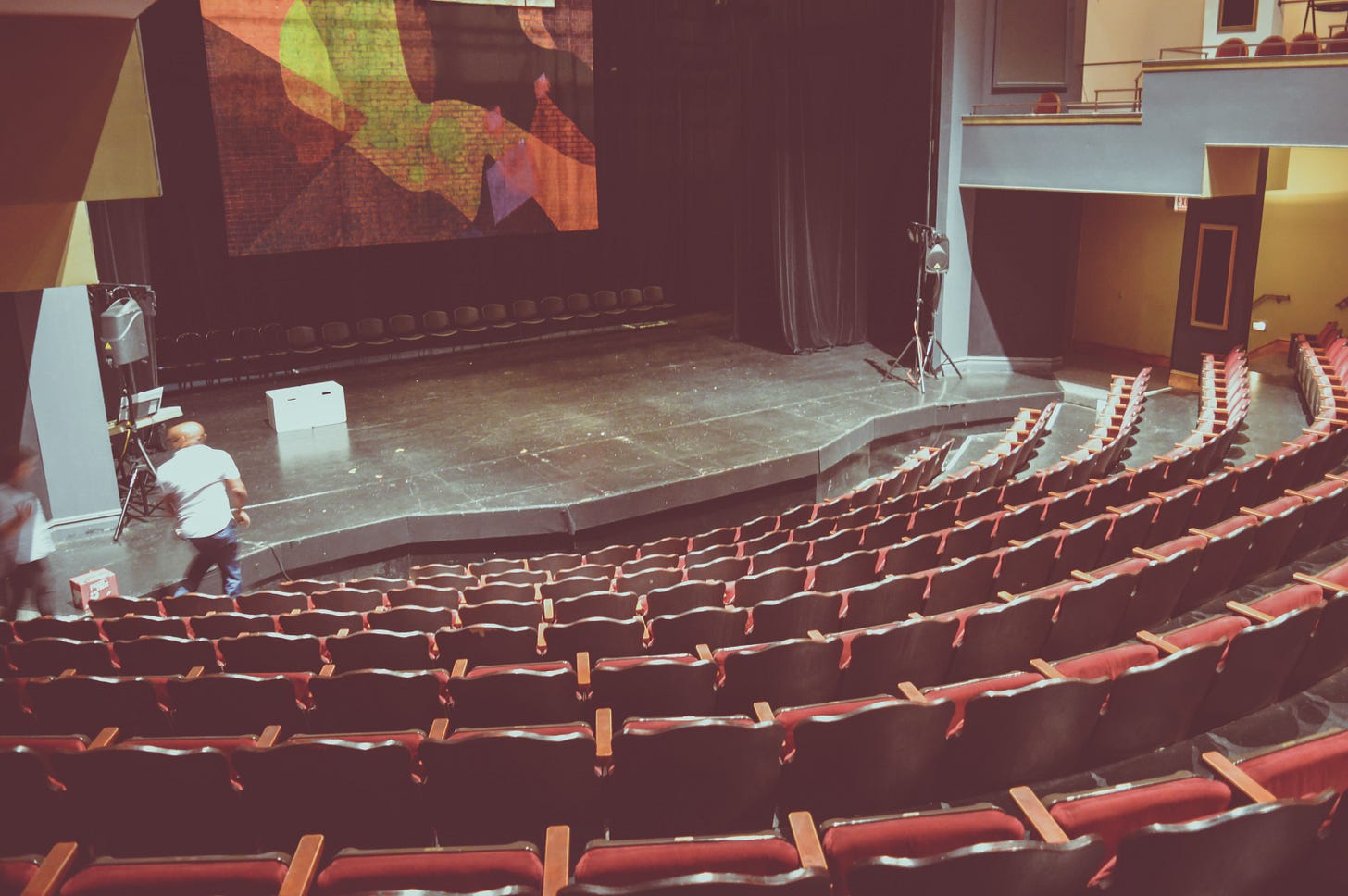
Can Theater Survive the Revolution?
by C.M. Miller, published in ‘The Federalist’
In every way possible, the Covid pandemic smothered live theater. Broadway shut down for over 500 days. Audiences vanished. Crew and actors clocked in as nonessential.
In compliance with strict lockdowns, professional theater companies went even further than schools and restaurants, with some policing themselves into near nonexistence. Where big theater companies cut back and gobbled up relief funds, smaller ones simply died off.
Three years out, live theater may be clawing its way back. Gross Broadway ticket sales are slightly higher than they were last year. But for regional theaters around the country, and particularly on the West Coast, the recovery is anemic.
The trend of fewer plays, canceled seasons, and closed theaters is now so prominent that even The New York Times is noticing. With worried theater folk mulling culprits — inflation, streamed entertainment, the exodus from cities, pandemic relief running out — few are seeing another, perhaps deadlier factor: regional theaters’ excessive focus on race, social justice, and woke ideology.
Displeased audiences may not be as unified (or viral) as those protesting Bud Light, but they are responding — by not buying tickets. Theaters in New York City, Chicago, and even Kansas City watched this happen in real-time, when plays with obvious social justice-flavored topics (racism in boxing or the daily struggles of immigrant life in a sanctuary city, to name a few) underperformed dramatically. But along the scenic West Coast, that flavoring is a heavy saturation, and the number of popular, destination-driven theater companies nearing collapse is jaw-dropping.
From L.A.’s Center Theater Group, which made headlines for layoffs, and for temporarily closing it's downtown flagship Mark Taper Forum, to the Bay Area’s California Shakespeare Theater (Cal Shakes) and up I-5 to the Oregon Shakespeare Festival (OSF), regional theaters that put so-called “diversity, equity, and inclusion” (DEI) platitudes centerstage are paying a heavy price. In jarring announcements, neither the OSF nor Cal Shakes is promising another season.
If they survive, it will be with a diminished presence in a region unusually friendly to the performing arts and well-suited to outdoor performance. Though few are asking, regional theater’s lock-stop devotion to far-left ideology raises a hard question — can theater even survive the revolution? Without a broad, paying audience (whose views may lean left but otherwise fall across the political spectrum), how long can cash-strapped stages keep the lights on?
For long-suffering theatergoers, locked down and now pelted with what Center Theater Group calls “social accountability”, Shakespeare’s description of Scottish tyranny under Macbeth comes to mind.
Alas, our country sinks beneath the yoke;
It weeps, it bleeds, and each new day a gash
Is added to her wounds.2
Yes, the lockdowns were regrettable. Yes, live theater suffered. But from here on out, each gash is self-induced.
As it turns out, racial animus and social justice programming aren’t new trends, as far as theater goes. Even before the George Floyd riots — which prompted hundreds of theater professionals (including household names like Lin Manuel-Miranda) to sign a racist initiative demanding “BIPOC” artists, programming, and staffing — the tight-knit community’s reputation for left-wing causes preceded itself.
But the fact that regional theaters are under immense pressure from Broadway heavyweights to tow the DEI line and make miracles happen doesn’t concern the audience. For them, after lockdowns, fewer plays as well as plays stuffed with racially driven moralizing are further insult.
The Oregon Shakespeare Festival in particular seems bent on following such racial initiatives to almost certain doom. With a bizarre new mission statement, creative teams packed almost exclusively—and considering Broadway pressure, by de facto policy—with nonwhite professionals, and programming that colors Shakespeare’s plots and language with predictable dogma, something really is rotten in Denmark.
The consequences spell trouble for Ashland, Oregon, a relaxed college town powered by the OSF’s four stages and nine-month season. The festival’s vast, loyal audience is now a fraction of what it was four years ago. By its own admission, the operating budget flounders.
Artistic Director Nataki Garrett resigned last May, but the administration still boasts its own team of IDEA (Inclusion, Diversity, Equity, and Accessibility) strategists. With the festival’s broad repertoire of professional actors all but thinned out, swollen production teams now come with “cultural competency” experts.
If few outside left-wing Ashland are applauding, one can’t blame them. With fewer plays, the festival is quickly losing the small-scale advantage it shared with Broadway or London’s West End: many plays happening all at once in a single location. Tourists or backpackers (the town straddles the Siskiyou Mountains) could waltz into town and snag nosebleed seats for as little as $20. Houses filled out in the summer and regularly sold out on weekends.
Trouble in Ashland
More sadly, the OSF is performing fewer of Shakespeare’s plays than ever before. Along with “Rent” and “The Three Musketeers,” the 2023 season offers “Twelfth Night” and an urban-themed “Romeo and Juliet.” That’s down from a long-running average of four or five Shakespearian works annually. Not staging Shakespeare, or only staging him in a way that thrusts race, national guilt, or LGBTQ themes centerstage, sends a clear message to theatergoers: Get with the program or don’t bother to come.
Sure enough, they aren’t bothering.
Families who once drove hundreds of miles to see “Hamlet” or “Henry V” in the open-air Elizabethan theater know the tune has changed. OSF board member Diane Yu notes that ticket sales, which previously brought in 70 to 80 percent of the festival’s operating budget, have plummeted.
Even with a purported $39 million endowment, the 88-year-old festival appears to be in poor shape. The OSF website begs visitors to help raise an emergency $2.5 million, without which, (it claims) there may not be another season.
Short of government intervention, which would make the OSF closer to the state-subsidized theater companies of England, or Bertolt Brecht’s lavish, East German propaganda plays, the country’s largest professional repertory company might be ending a wildly successful run.
With loyal fans across the northwest, a long-running “Shakespeare in the Classroom” workshop for educators, and programming that delighted thousands of students annually, the OSF’s shoes will be difficult to fill. But if the woke takeover of the OSF upstages everyone else, it’s not for lack of trying.
South of San Francisco, the beleaguered Santa Cruz Shakespeare is casting a “laser focus” on social justice. Farther north, the Marin Shakespeare Company is fighting so-called systemic racism with “Shakespeare and Social Justice.” In Seattle, theater companies wave the same DEI banner, lament their bias, and bemoan the pillage of Native American land.
Whether or not such mea culpas will increase ticket sales is another story.
Collapse of Cal Shakes
A final case study is the DEI-addled California Shakespeare Theater. Earlier this summer, Cal Shakes announced its 2023 season won’t feature any of its own plays. Rather, and to recover from declining ticket sales and relaunch in 2024, Cal Shakes is lending its splendid outdoor amphitheater in Berkeley Hills to outside productions, including one of ‘Cymbeline’ and a coterie of performers.
Audiences who made a habit of arriving early with food, drink, and picnic blankets before taking their seats can now look forward to an “Animal Liberation Orchestra,” a standup night with Native American comedians, and a “Storytelling Mosaic” focused on peacebuilding, to name a few offerings.
As a lone IV drip, the company’s dramaturge offers an online class: “Shakespeare and the Modern Mind.” Peacebuilding? Animal Liberation? Activists a few BART stops away can hardly wait.
Ironically enough, and before swapping out the 2023 season for a politically correct talent show, Cal Shakes surveyed some 570 of its audience members. Even in the hyper-leftist Bay Area, its summary of findings makes for ironic, even laughable reading:
In the survey we asked you to prioritize what you value most about Cal Shakes. You ranked the Setting (The Bruns Ampitheater) the highest, and Plays second. … [O]ther aspects of Cal Shakes’ offerings, such as education programming, Shakespeare, Equity Diversity and Inclusion … all those other priorities combined are not valued as highly as either the location or the fact that we do theater.3
People want plays. They want them onstage and preferably in a good location. Could the Bard himself have made it any plainer?
That a Shakespeare company near a rich, culture-loving region needs its audience to state the obvious might be the comic relief we need right now. That companies like the OSF, after 80 years and 37 cycles through the canon, are crossing a point of no return is a tragedy.
Epilogue — A Theater Kid, Mourning Ashland
As I said right off the bat, this one’s hard and personal.
Before teaching, before getting married, before seeing stories, Biblical archetypes, and creative writing with fresh eyes at New Saint Andrews—and long before the lockdowns—I was a gung-ho theater kid. Curious, imaginative, off in my world in a way that sometimes put me a beat behind everything else, I followed my bent toward acting and stick with it through college. Skip forward to now and I still miss all of it. While I didn’t head to New York, Chicago, or even nearby L.A. to start auditioning (I know brave souls who did just that and I admire them more as time goes on), I haven’t forgotten the thrill, tension, and football-team camaraderie of partaking in the world’s second oldest* narrative artform.
*As far as I know, oral tradition is the oldest—telling a story rather than acting it out. As Aristotle documented, live drama is a close second.
If you’ve never acted, crewed, or helped out with a play before, put it on once-in-a-lifetime list.
Yes, you’ll meet weirdos, but no matter.
Go out for Shakespeare (performed onstage, not read with your friends) at least once because trust me, there’s nothing like it.
While teaching and getting published fill some of the void, I still marvel at what C.S. Lewis called the liminal space between real life (backstage) and imaginative play…or something like that. (Forgot where he said it and no doubt I’m butchering). Looking back, a lot of performance is being focused, and fully present in that in-between space, straddling realms and moving between them—onstage when you hear your cue, offstage to change your costume—and with the grace of athlete. For those playing Hamlet, or King Lear, or Mother Courage, or Nora from A Doll’s House, the stamina required is nothing short of a marathon.
Out in the house, the story moves fluidly. Crew, ushers, actors lights, sound, set design—every rank and hidden effort takes pain to keep the illusion going.
All that to say, there’s a grandeur to the artform, a war veteran honor that pitchfork raising, family protecting conservatives like myself can easily miss. For every musical theater kid singing ‘Rent’ in a falsetto, there’s a brave few who follow the actor’s call to a kind of nomadic, hand-to-mouth existence. Rehearsing, auditioning, if they’re lucky, moving around to play after role—and delighting audiences with a job well done.
Until recently, regional theaters like the Oregon Shakespeare Festival were a kind of haven. A guild town for actors and crew grateful for work, and audiences delighted in show after show, and even Green Shows on the outside quad, well done.
If you’ve been to Southern Oregon, you know how beautiful the region is—and you’d be forgiven for forgetting how rugged and remote it once was. When drama professor Angus Bowmer started the festival in 1935, Ashland was a more of a tucked-away mountain town, not an outdoorsy, wine-bar one with summer tourists and a world class Shakespeare festival. Legend goes that the inaugural performances (The Merchant of Venice and Twelfth Night) had crosstown competition—a boxing tournament.
Wouldn’t you know it? Shakespeare won.
Since then, the OSF grew into a national phenomenon; a kind of West Coast Broadway without the big city. Four stages on Ashland’s main drag, a yearlong repertoire of a hundred or more professional actors, and at one point ten plays for audiences to choose from, all happening throughout the week and in one gorgeous, charming, green mountain location.
Now—as you’ll see in my article, and thanks to full-tilt DEI, left-wing ideology, and the OSF’s restructuring into a near-exclusive haven for BIPOC creatives and their supposed audiences—Ashland’s magic may be tainted, or even lost, forever.
Having frequented the OSF myself for years, taken friends and family there, and even completed the festival’s teaching Shakespeare course that’s impacted hundreds of teachers and thousands upon thousands of students over the years, this one packs a wallop.
Knowing Ashland and what it once was—there’s performances of Henry IV Part One, and Richard III I will never forget—it’s painful, and a bit like watching a once good friend fall prey to an addiction.
Unless headwinds change, I’m not the only one who will feel the Oregon Shakespeare Festival’s implosion as an impending loss. For the region, the local economy, a broad, loyal audience, and actors everywhere, the crater will be a huge one.
But along with being a cautionary tale (even in blue, picturesque Oregon, going all on in race, national guilt, and DEI means destroying your audience) every tailspin signals that a new frontier is opening.
If you're a producer, an actor, or a stage director who bristles at woke dogma, this is your chance. There's an enormous audience out there who would pay to be piqued, delighted, and challenged by a good live show, by owning and wielding that liminal space with mastery.
Done well, and without the obvious DEI slant, Shakespeare’s plays still kill it.
Streaming and digital content may be King, but there will always be an audience for high culture. For those who can deliver it (and who understand what's happening), starting a non-woke theater company might even be a goldmine. So let’s not spend too much time weeping, creatives, builders, and potential audience members.
Let’s hop to it.
‘Playwrights at Work,’ published by The Paris Review. Modern Library, 2000.
Macbeth, Act IV
See Cal Shake’s online update.





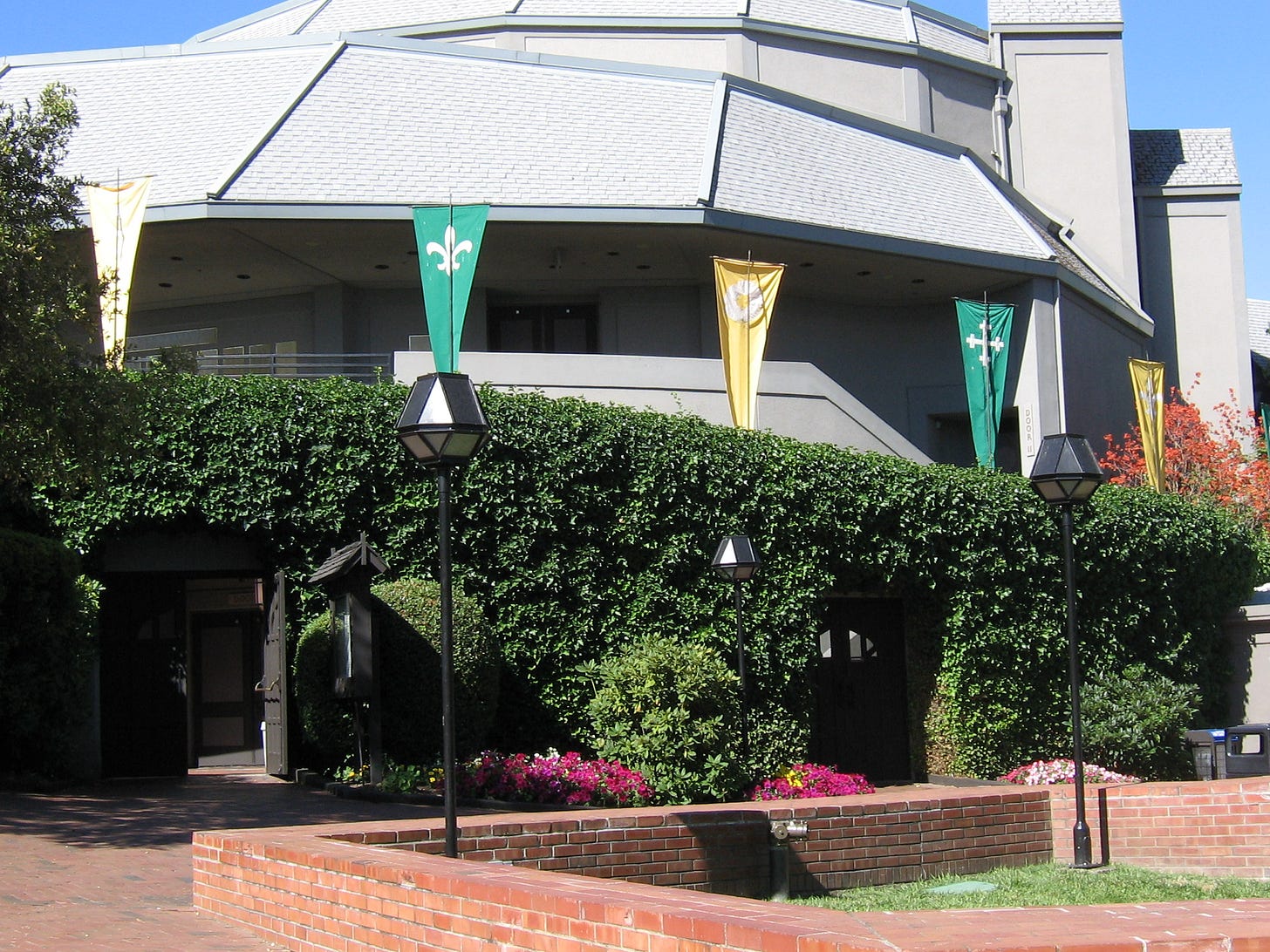
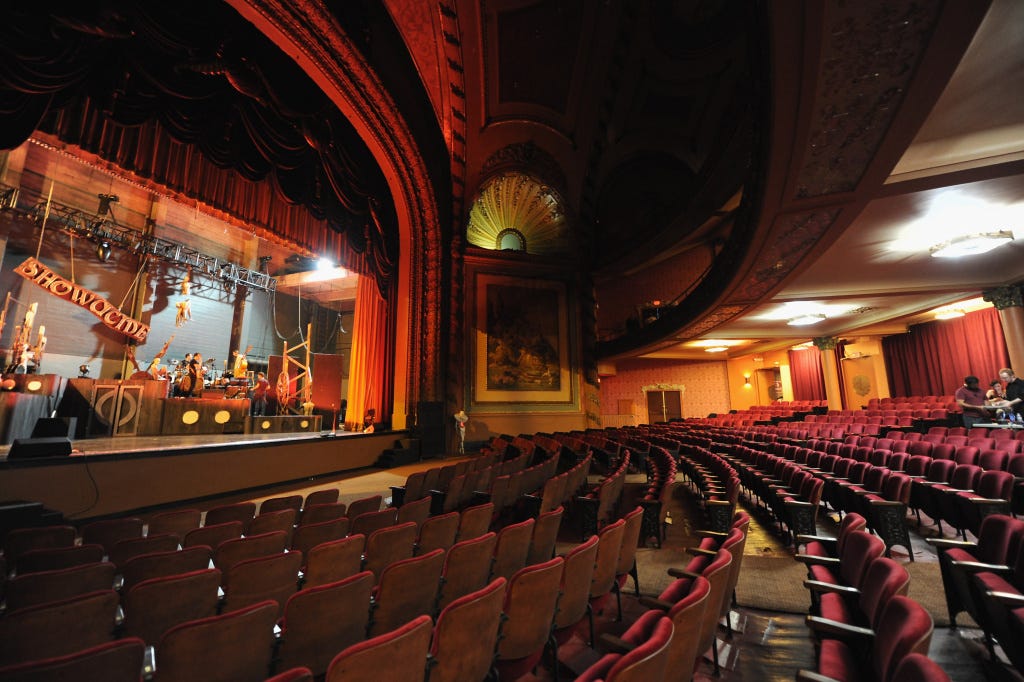
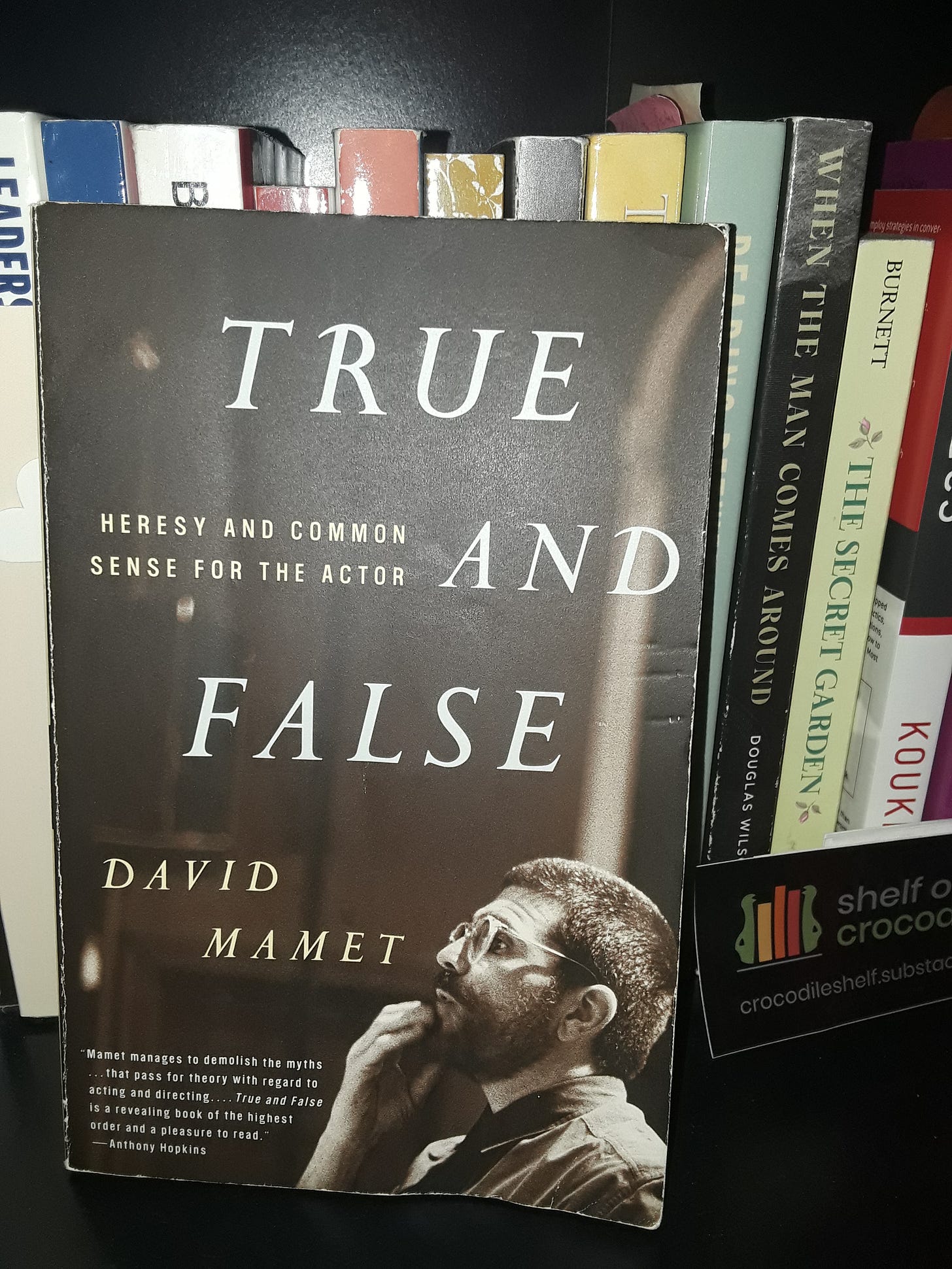
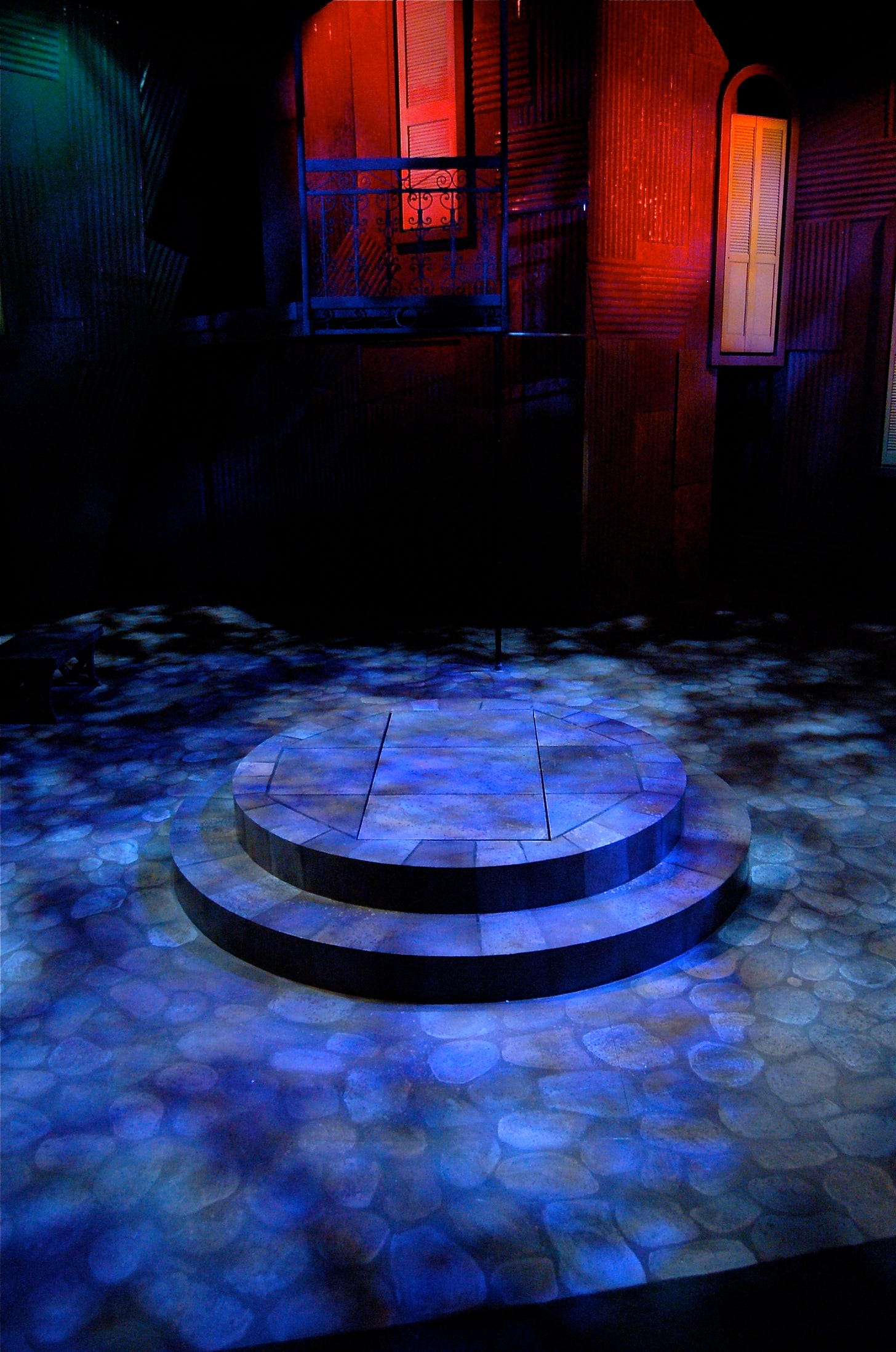
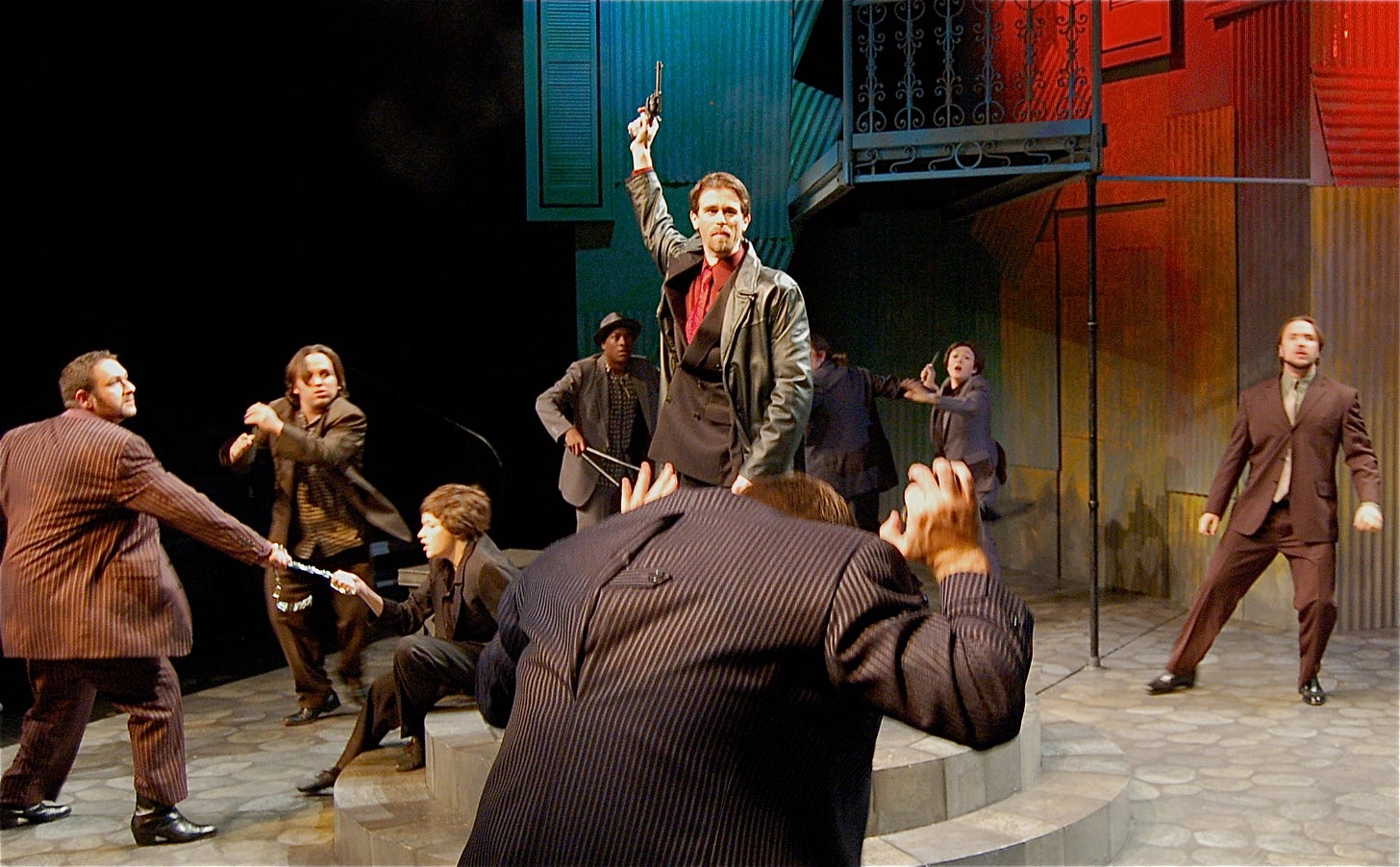
Very compelling analysis, thank you. In my hometown (Omaha, NE) our free Shakespeare festival (not nearly as big a production as OSF or Cal Shakes, but still) never came back after the 'rona. It had been trending towards progressive ideology for a while, and although I have no idea what was the deciding factor in its demise, I wouldn't be surprised to find that audience size had been dwindling.
Fully agree that theatergoers just want a story and not a sermon. But I notice your not-so-subtle dig at entertainment from the right as well; my intuition is that no one, left or right, wants to be preached at when they watch a show, and if we had theaters blanketed with conservative ideology the audiences would find it just as off-putting. There has always been a tension among artists of all kinds between the obligation to entertain and the desire to communicate a message, between the desire to "make 'em laugh" and to proclaim vast and weighty truths about the world. In the visual arts there is the dichotomy between "mere decoration" and avant-garde innovation. In music, we see the oscillation between "hard and edgy" pop music like Nirvana being replaced by fun and bouncy music like Ace of Base (a point made excellently in John Seabrook's book The Song Machine).
Artists will do what they will do, but I would hope that, for all points on the ideological spectrum, a clear signal from the market such as drastically reduced ticket sales would lead to a sober reassessment of communicative strategy and goals among artists. We'll see, I guess.
C.M. Miller,
I wanted to reach out and express my genuine appreciation for your insightful and thought-provoking blog post titled "Can Theater Survive the Revolution?" Your candid exploration of the current state of regional theaters and their struggles with woke ideology is both illuminating and thought-provoking.
You've captured the essence of a complex issue, skillfully highlighting how the overemphasis on ideological messaging can detract from the true artistry and experience that live theater offers. Your analysis of the disconnect between what theatergoers truly value—authentic performances, compelling narratives, and skillful execution—versus what some theaters are prioritizing sheds light on why audiences may be choosing not to engage.
Moreover, your personal connection to theater and your ability to convey the passion and grandeur of the art form is palpable. Your reflections on the delicate balance between the liminal space of performance and the immersive experience it offers resonate deeply with anyone who has been captivated by the magic of live theater.
I couldn't agree more with your call to action for creatives, producers, and artists to take this moment as an opportunity to deliver high-quality, engaging theatre from a variety of perspectives including more conservative perspectives. Your optimism for the potential theater dedicated to a "Market-Place of Ideas" to captivate and resonate with audiences is inspiring.
Thank you for tackling this important topic with a balanced and insightful perspective. Your article is a reminder of the power of art to transcend political divides and connect with audiences on a deeper level. I look forward to seeing how the theater industry evolves in response to these challenges and opportunities.
God Bless.
Your Friend,
Frank Mihelich